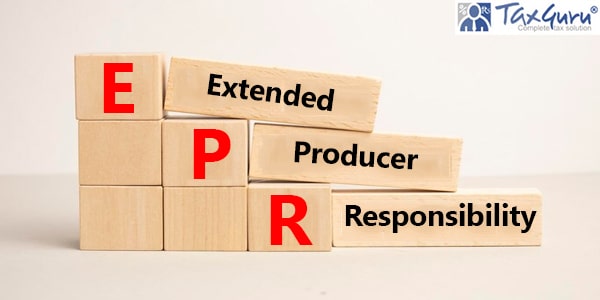Extended Producer Responsibility (EPR) is a vital concept aimed at promoting environmental sustainability by holding manufacturers responsible for the entire life cycle of their products. In India, EPR has gained prominence as a crucial mechanism to manage the growing problem of waste generated from various industries. This article provides insights into EPR registration in India, its significance, and the regulatory framework governing it.
1. What is EPR?
Extended Producer Responsibility is a policy approach that encourages producers to take responsibility for the environmental impacts of their products throughout their lifecycle, including post-consumer disposal. The primary objective is to reduce the environmental footprint of products and promote a circular economy.
2. Importance of EPR in India
India, with its rapidly growing population and industrialization, faces significant challenges in waste management. EPR plays a pivotal role in addressing these challenges by shifting the responsibility for waste disposal from local authorities to the producers. This encourages sustainable production practices and motivates manufacturers to design products with end-of-life considerations.
3. Regulatory Framework for EPR Registration
In India, the EPR framework is primarily governed by the Plastic Waste Management Rules, 2016, and the E-Waste (Management) Rules, 2016. Producers falling under these categories are obligated to register under EPR and fulfill their extended responsibilities.

4. EPR Registration Process
The registration process typically involves submitting necessary documents, such as the producer’s details, proof of financial mechanisms for waste management, and a plan outlining how the producer intends to manage the environmental impact of their products. The Central Pollution Control Board (CPCB) and State Pollution Control Boards (SPCBs) are the regulatory bodies overseeing EPR compliance.
5. Compliance and Penalties
Once registered, producers must regularly report on their compliance with the EPR norms. Failure to adhere to these obligations can result in penalties, including fines and, in extreme cases, suspension of business operations. These measures are in place to ensure that producers are actively participating in sustainable waste management practices.
6. Scope of EPR
EPR in India covers various sectors, including packaging materials, electronics, and electrical equipment. Producers dealing with these products must be vigilant about their environmental impact and take necessary measures to manage the waste generated throughout the product’s life cycle.
7. Challenges and Future Outlook
While EPR is a step in the right direction, there are challenges such as proper implementation, awareness, and monitoring. Strengthening the regulatory framework, increasing awareness among producers, and incorporating innovative waste management technologies will be key to the success of EPR in India.
In conclusion, EPR registration in India is a crucial aspect of environmental sustainability, encouraging responsible production and waste management practices. As the country continues to strive for a cleaner and greener future, the effective implementation of EPR will play a pivotal role in achieving these goals.





